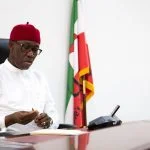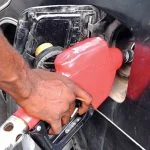Nigeria has no reason to be poor. The country’s human capital is one of the richest in the world. Nigerians are some of the most energetic go-getters in the world. The country is blessed with abundant natural resources, fantastic climate and one of the greenest landscapes on earth. Ironically, Nigeria currently ranks among the poorest and most unstable countries in the world.
Today, based on the parallel market exchange rate of $1 to ₦900, it will take about two and half years for a Nigerian earning one naira a day to earn a dollar. And before the end of the two and half years, the same ₦900 will no longer be enough to get the person $1. The naira equivalent of $1 may have jumped up to ₦1,500 or more.
What is happening to the Nigerian economy is scary. The naira has been depreciating over the decades, but the rate at which it has depreciated under the regime of Major General Muhammadu Buhari (retd.) has been frightening. It looks like something that is not under any control; like a paper falling from the sky.
The Central Bank of Nigeria has thrown everything at it in a bid to stop the free fall, to no avail. In August 2015, the CBN took the weirdest action in its bid to stop the rapid fall of the naira. It got labourers with chainsaws and machetes to cut off branches of trees under which black market currency exchange operators gathered in Abuja, the Federal capital Territory. As far as the CBN was concerned, the moment the illegal operators could not get the shade the trees offered them, they would stop their operations.
Nigeria has no reason to be poor. The country’s human capital is one of the richest in the world. Nigerians are some of the most energetic go-getters in the world. The country is blessed with abundant natural resources, fantastic climate and one of the greenest landscapes on earth. Ironically, Nigeria currently ranks among the poorest and most unstable countries in the world.
Today, based on the parallel market exchange rate of $1 to ₦900, it will take about two and half years for a Nigerian earning one naira a day to earn a dollar. And before the end of the two and half years, the same ₦900 will no longer be enough to get the person $1. The naira equivalent of $1 may have jumped up to ₦1,500 or more.
What is happening to the Nigerian economy is scary. The naira has been depreciating over the decades, but the rate at which it has depreciated under the regime of Major General Muhammadu Buhari (retd.) has been frightening. It looks like something that is not under any control; like a paper falling from the sky.
The Central Bank of Nigeria has thrown everything at it in a bid to stop the free fall, to no avail. In August 2015, the CBN took the weirdest action in its bid to stop the rapid fall of the naira. It got labourers with chainsaws and machetes to cut off branches of trees under which black market currency exchange operators gathered in Abuja, the Federal capital Territory. As far as the CBN was concerned, the moment the illegal operators could not get the shade the trees offered them, they would stop their operations.
The CBN has repeatedly increased lending rates, given different directives on how to receive foreign remittances, reduced how much one can spend via a debit card, launched the e-naira, and taken dozens of other steps, but none has worked. The naira just continues to fall.
The latest effort of the CBN is the announcement of the redesign of the top-three naira denominations: 1000, 500, and 200. Some have hailed the action as a masterstroke. But the market has responded against that action with the speedy fall of the naira from about 700 to 900 for $1 in less than two weeks of its announcement.
Interestingly, Buhari took the same step in 1984 when he came in as a military dictator. At that time the highest denomination was N20. That action did not help to turn around the economy.
For a regime that is regularly borrowing money; for a regime which allowed universities to close for eight months, with the excuse that it did not have the money to meet the demands of the striking lecturers, it is strange that it could embark on this costly venture of printing billions of naira notes at a time like this.
The continued depreciation of the naira is a testimony that productivity is low while the theft of public funds is high. The economy is resting on nothing. Import is high while export is low.
But if the instability in the economy was the only challenge in the country, most Nigerians would bear it with equanimity, hoping that it might end some day. The insecurity in the country is the most worrisome. Unlike in the past when the common refrain was that the Boko Haram insurgency was restricted to some parts of the North-East region, there is no part of Nigeria that is safe today. The farms are not safe, making it hard for foods to be produced for domestic use and export. The prices of food items have skyrocketed, increasing the hunger in the land. This, in turn, affects the economy and the exchange rate of the naira.
The roads are not safe, making it hard for people to move about to transact businesses as well as their goods. The homes, offices, schools, markets, worship centres, and other public places are not safe. Nobody knows where an attack or abduction will take place. Therefore, the people live in fear, not sure of the next minute.
There is despair in the land. Most people have lost hope on the capacity of the President to cause any change in the system. It is obvious that he has done all that he can do regarding the economy and security. The people are now looking for who to succeed Buhari. Based on the gender of the top candidates, it is obvious that it will be a male. Will it be Senator Bola Tinubu of the ruling All Progressives Congress, Peter Obi of the Labour Party, or Alhaji Atiku Abubakar of the Peoples Democratic Party? They have made promises like politicians do.
But whoever succeeds the President will not have an easy ride. Buhari’s successor will inherit a country gasping for breath. After denying the existence of subsidy on petrol before taking office in 2015, Buhari has spent the last seven and half years of his eight-year tenure paying humongous petrol subsidies. Rather than end that subsidy regime, he has shifted the date of the end of the petrol subsidy to June 2023, one month after his exit. What it means is that the administration after him will take off with anger in the land, caused by an abrupt rise in petrol price. Workers may go on strike.
In addition to battling the effect of the removal of petrol subsidy, the new President will take steps to stop or reduce the insecurity in different parts of the country. He will make attempts to revive the economy. He will make attempts to fulfil the campaign promises.
Any leader who does not have the capacity to elicit the trust of the people will not succeed in the environment that will present itself after Buhari’s exit. Such a leader will have to take bold and unpopular decisions. A leader who does not have the capacity to win the trust of the people that he means well will not get the buy-in or patience of the masses.
To win the trust of the people, such a leader will need to live by example. Nigerians will be willing to make sacrifices. But they need to see their leader take the first step. A leader who lives a flamboyant lifestyle cannot succeed in convincing the people to make sacrifices. A leader who does not buy made-in-Nigeria products or patronise Nigerian hospitals and doctors, Nigerian holiday sites, Nigerian schools, etc., will not win that trust.
A leader who is not physically fit will not be able to cope with the arduous task that will face Buhari’s successor. The new leader will need to work extra hours, be at different places within a short time, respond to crises promptly, read volumes of documents and act on them promptly, etc.
When Nigerians see that their leader has come to build and give to the nation, not to take or share the nation’s wealth with his cronies, they will be willing to donate even the little they have and also rise against those who want to continue to fritter away the nation’s resources. That is how other great nations prosper.
It won’t be easy but it is possible in Nigeria. However, it depends on the ability of the voters to vote for long-term national interest instead of short-term personal gain.





2 Comments